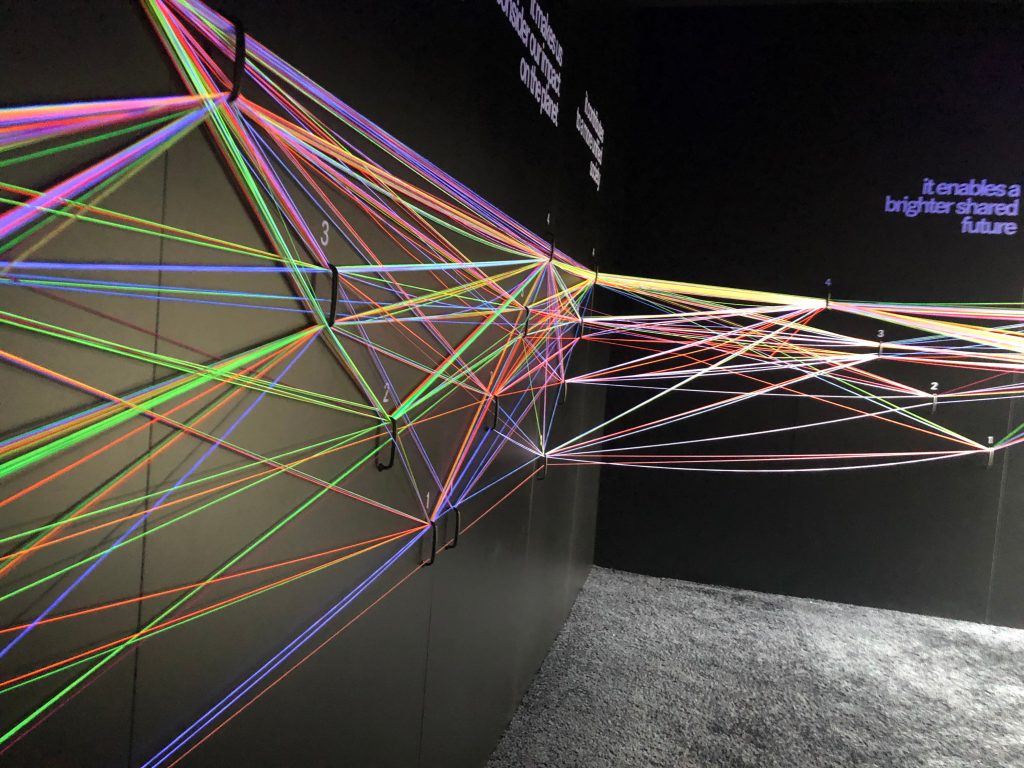A part of my job is to make sure we’re heading in the right direction at the right speed. For me, the best place I’ve found to do that is at SXSW in Austin, Texas. One of my favourite things about SXSW, is that it gives you a glimpse into the future. That’s why I go – to see what’s coming down the line. Without further ado, here are some of the key trends and themes that stood out for me this year.
Creativity

Can you believe the CIA now have institutionalised creativity as a practice?! They provide formal training centred around four animal personas. Each animal represents different ways of practicing divergent, creative thinking:
- The “What are all the ways we could” Wombat
- The “Get out of your box” Wolf
- The “Think analogically” Wood Duck
- The “Break Patterns” Otter.
It can be all too easy to remain task-focussed and leap straight to convergent thinking. Often, we’re not staying in divergent thinking long enough. It was an interesting and thought-provoking talk from the CIA, that I would recommend checking it out.
Politics, privacy and morality
These were three topics I found were interwoven with so many talks. A recurring theme was that we’ve created systems that incentivise shareholder return, rather than social values and morality. At the end of the day, that’s what most people actually want.
- Roger McNamee’s keynote hammered home the importance of regulating tech companies. His current project, Humane Tech, is an effort to make sure we’re using AI to do more than disrupt our beliefs, our jobs and our lives
- It was made clear the amount of influence social media giants have. For example, Facebook’s take down of fake news by removing fake accounts and downranking misleading content
- The always incredible, Amy Webb is of the opinion that privacy is dead: we all generate 5-600 mineable data points, constantly. She thinks smart economic incentives will beat regulation every time
There’s no way of keeping tech and politics separate. We have important choices to make about how we want to design our governance systems.
The central role of content and storytelling (and WordPress)

All of the experiences that we have and will have online come down to content and the empowerment of content creators.
- Ex-Uber developer, Susan Fowler‘s powerful talk ended with a mantra: “Words can change the world” – let’s not underestimate the power of what we can do to change the world by helping people use WordPress to communicate.
- Bath bomb-tastic Lush have created their own app framework to make sure their customers get the experience they wanted to provide.
-
Direct To Consumer (DTC) is CNN’s most important initiative currently according to their CEO Jeff Zucker.
Whilst it’s tempting to use platforms to power these content vaults, doing so puts you at the mercy of their terms and conditions and desires of the platforms’ owners. With WordPress, it’s truly owned media.
China
I found the scale of Chinese activity and investment in tech to be mind-blowing. Online payment platform, AliPay uses in-app mini games to incentivise behaviours, like creating carbon-reduction and tree-planting activities. The impact of this has actually been visible from space!! It gives hope that designing system incentives, can drive positive change. Shanying Leung from AliPay also demonstrated the design process used for institutional AI design at astronomical scale.
Convergence and next-gen experiences

The next wave of digitally-powered experiences are powered by the convergence of AI, Blockchain, 5G, Edge Compute and Extended Reality (XR).
- I heard a lot about XR (Mixed/Augmented/Virtual Reality) and bots (chat, voice, social media). And, there was a more focussed look at Blockchain as that tech starts maturing into specific use-cases
- LivePilot‘s provocatively-titled talk ‘RIP websites, the end is nigh‘ was super interesting. It discussed how converging with the next wave of digitally-powered experiences will be driven by the strength of your relationship to your customers/stakeholders.
- FTI’s (Amy Webb) prediction for when 50% of interactions with computers will be by voice has dropped from end 2021 to end 2020. This is partly due to the push by Amazon/Alexa. But think beyond Alexa to: smart speakers, cars, appliances, phones, kiosks, headphones
- XR is a great demonstration of convergence. AI is needed to surface and display immersive, personalised experience based on near real-time content
The resurgence of the powerful individuals
It seems to me that there’s a great opportunity for services that apply the technology of centralised corporations to the service of individuals. Decentralised technologies like blockchain will enable these trusted and intimate relationships with our own data and AI. It will provide a check/balance against the magnetic force of centralisation that is unopposed today.
- Blockchain will power the advent of Personal Data Records that will give data back to individuals
- Personal bots (AIs that have our individual interests at heart) will start negotiating with other AIs on our behalf – e.g. bartering with websites about what data we’re prepared to share for what access
This was my second time going to SXSW and I enjoyed it just as much as the first time. If you have the opportunity to go, I would highly recommend going, because as you can see, there’s a lot you can take away from it.
